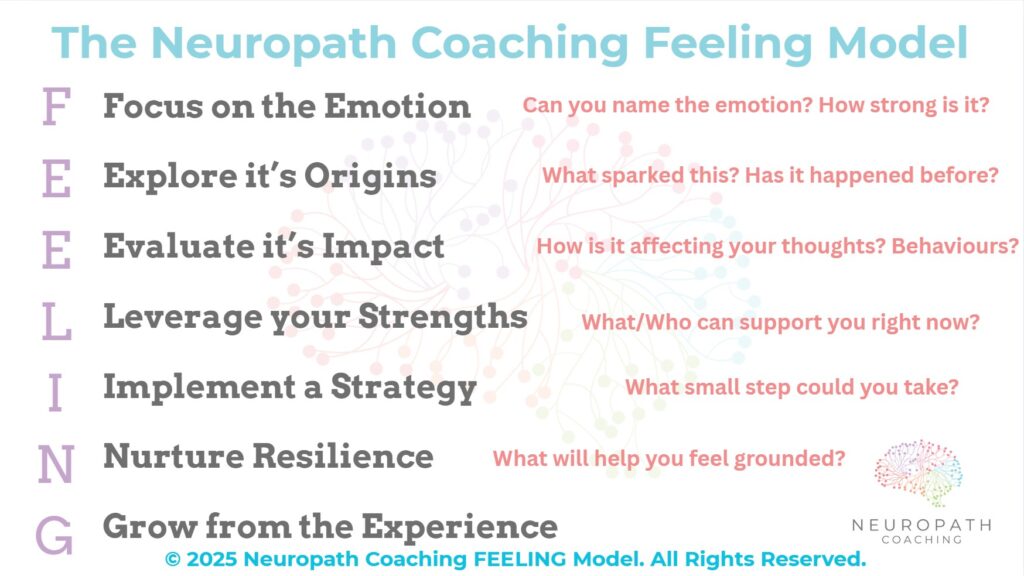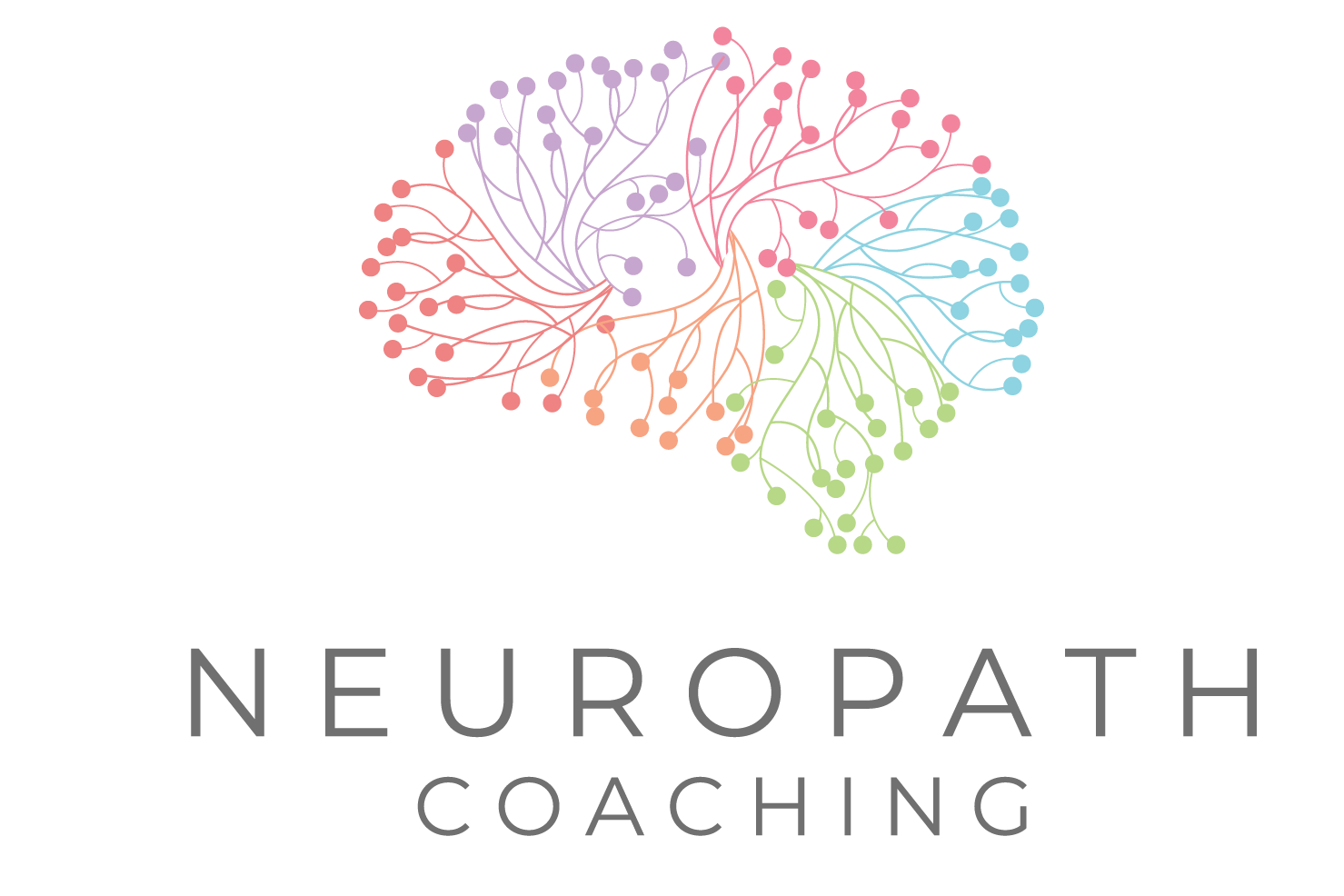The FEELING Model
An original Neuropath Coaching Model providing a structured approach to emotional intelligence coaching based on neurobiological and psychological principles.
This model can be used by coaches with clients struggling with overwhelming emotions, to recognise triggers, shift responses and build emotional resilience. Here is a simple image to explain the model. Read this full page for the expanded questions and neuroscience behind the model.

F – Focus on the Emotion
- Identify the dominant emotion the client is experiencing.
- This will increase emotional awareness by noticing and naming the current emotion.
- Coaching Questions:
- What emotion are you experiencing right now?
- Where do you feel it in your body? (Interoception)
- If this emotion had a voice, what would it say?
- How intense is it, on a scale from 1 to 10?
E – Explore Its Origins
- Investigate the trigger and past experiences that shape the emotional response.
- Neuroscience Link: Hippocampus (memory storage) and limbic system interaction.
- Coaching Questions:
- What do you think sparked this feeling?
- Have you felt this way before? When?
- What past experiences might be influencing your reaction?
E – Evaluate Its Impact
- Understand how the emotion is affecting thoughts, decisions, and actions.
- Neuroscience Link: Dorsolateral Prefrontal Cortex (DLPFC) – cognitive control over emotions.
- Coaching Questions:
- How is this emotion affecting your thoughts or actions?
- What impact is it having on your relationships or work?
- Is it helping you move forward or holding you back?
L – Leverage your Strengths
- Identify strengths and resources that can help regulate the emotion.
- Neuroscience Link: Vagus Nerve Activation (breathing, relaxation response), Oxytocin release (social bonding).
- Coaching Questions:
- When have you successfully dealt with a similar situation?
- What personal strengths can you draw on right now?
- Who or what supports you in times like these?
I – Implement A Strategy
- Introduce practical neuroscience-backed techniques to shift emotions.
- Neuroscience Link: Neuroplasticity – building new emotional habits.
- Coaching Techniques:
- What’s one small step you can take to support yourself?
- What would self-compassion look like in this moment?
- How can you regulate this emotion using what you know?
N – Nurture Emotional Resilience
- Develop long-term strategies to build self-regulation and resilience.
- Neuroscience Link: Anterior Cingulate Cortex – error detection and adaptive learning.
- Coaching Strategies:
- What helps you feel grounded during emotional challenges?
- What routines, boundaries, or tools help you bounce back?
- How can you take care of yourself after this conversation?
G – Grow from the Experience
- Turn emotional experiences into learning opportunities.
- Neuroscience Link: Neurogenesis in the hippocampus – learning from emotional experiences.
- Coaching Questions:
- What have you learned about yourself through this experience?
- How might this challenge shape your growth?
- How will you carry this insight forward?
For more like this, sign up to the newsletter!
